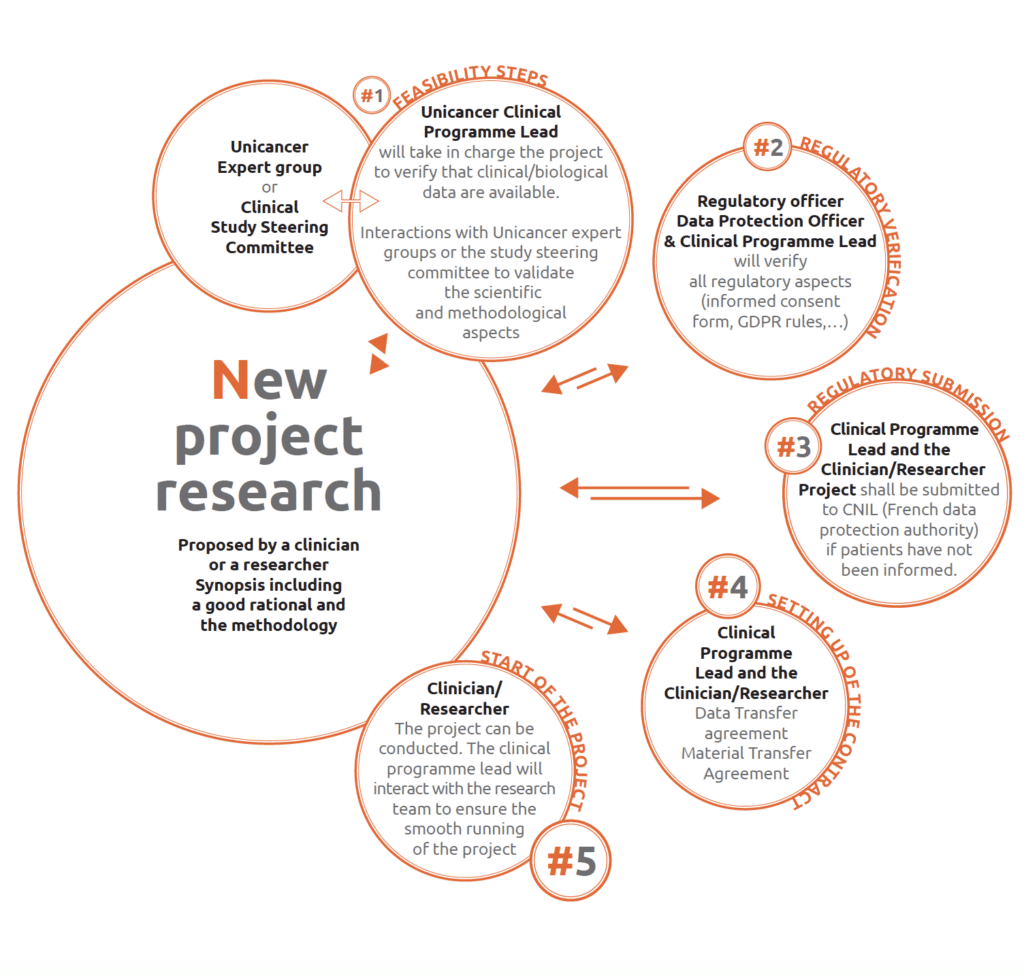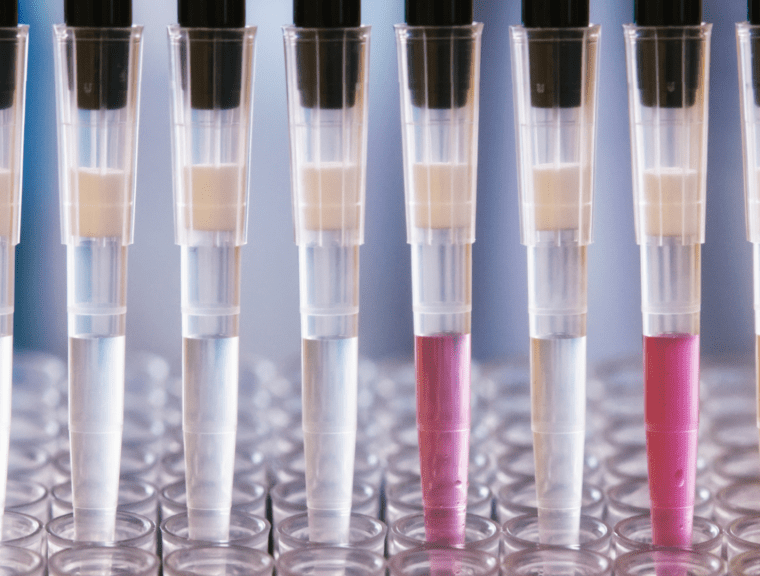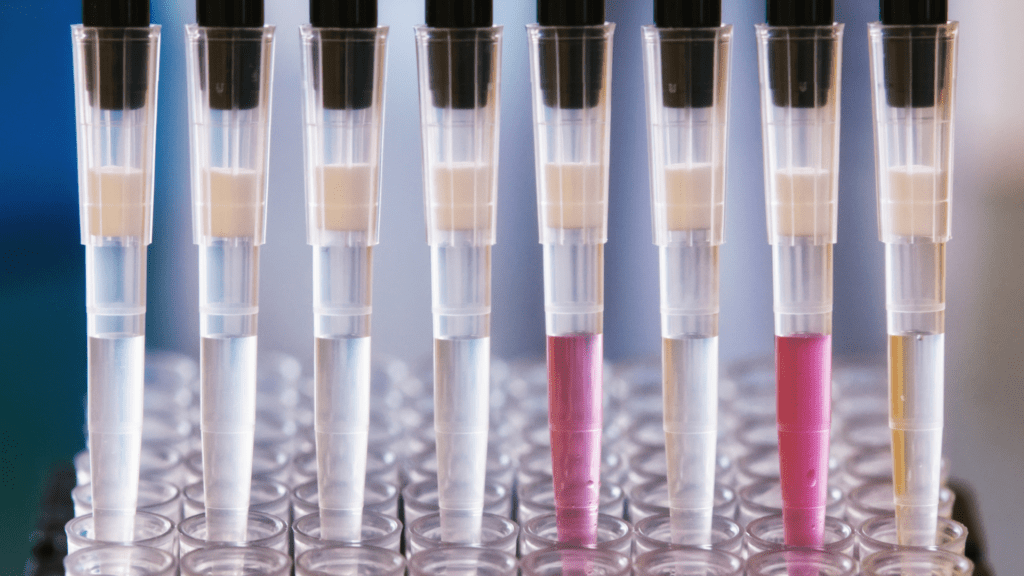Tumor and plasma collections provide essential study material for translational research, allowing the application of innovative techniques at the patient’s bedside. Therefore, studies promoted by Unicancer Research include the collection of tumors and/or blood samples, with patient consent, for translational research programs.
The Unicancer biobank was created in 2012 to meet the requirements of Unicancer’s Research strategy by creating a collection of samples for clinical research programs to promote biological research and advances in cancer treatment.
The entire collection is centralized at the Léon Bérard Center and made available to research teams. The samples come from 19,762 patients enrolled in a total of 77 studies. Historical collections are primarily focused on breast cancer. New types of biological samples such as feces and saliva are also being collected with the advent of new research programs.
- 89,077 samples stored in total, or approximately 215,000 aliquots
- 8,848 new entries in 2023
- 5,422 outputs in 2023 used in 11 research projects
Samples represent collection points: multiple individual biological samples (called aliquots) can be collected at a given collection point (e.g., baseline or day 1 post-treatment), so one sample actually represents 1 or more aliquots.
2023 Data
Unicancer opens its data and samples to research
To accelerate the development of knowledge in oncology and increase interfaces between fundamental and clinical research (translational research), Unicancer Research provides researchers and clinicians from any institution with access to data for their projects of interest. Moreover, numerous ancillary studies associated with clinical trials have enabled Unicancer to build a collection of biological samples that can be linked to clinical data and thus reused for research purposes, in compliance with current regulations.
Thus, any clinician or researcher wishing to use clinical data and/or biological samples as part of a specific research project can contact Unicancer, which, as the manager of the data warehouse and biological collection, will ensure the proper use of the data in accordance with the information previously provided to patients.



